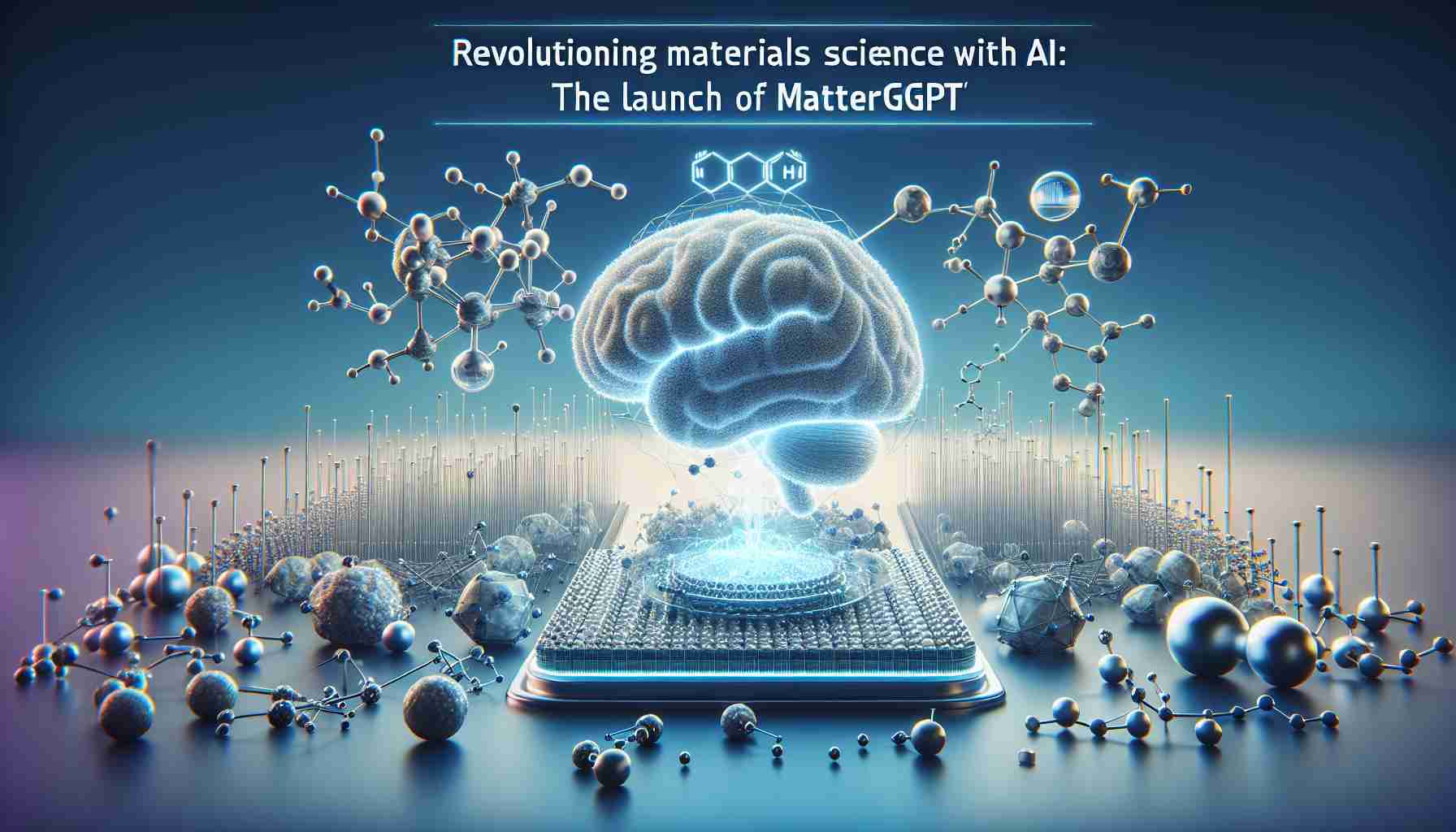This year’s Nobel Prize ceremony highlighted the profound impact of artificial intelligence (AI) in various scientific domains, particularly physics and chemistry. The accolades awarded to pioneers, including John J. Hopfield and Geoffrey E. Hinton, underscore the significance of AI-driven innovations. Their foundational contributions in machine learning and neural networks have opened new avenues for research and discovery.
In the realm of materials science, a groundbreaking achievement emerged from the collaboration of Professors Xiao Hang and Chen Xi at Lingnan University’s Interdisciplinary Institute. Their team has pioneered the development of MatterGPT, an advanced language model designed specifically for the reverse engineering of solid-state materials. Utilizing an innovative coding system known as “SLICES,” MatterGPT can efficiently navigate the extensive chemical space to identify materials with precise characteristics.
Since its release, MatterGPT has captured the attention of researchers across various fields. Unlike traditional methods, this AI model demonstrates remarkable accuracy and speed in generating new materials, especially in energy-related applications like OLED development and carbon capture technologies.
The commitment to open science is evident as both MatterGPT and the SLICES system are available as open-source projects. This initiative aims to foster global collaborations and expedite advancements in critical areas, including renewable energy and climate change solutions.
As they stand at the forefront of this revolutionary approach to materials science, Professors Xiao and Chen invite scientists worldwide to leverage these tools for transformative breakthroughs.
Exploring the Future of AI in Science: Tips, Life Hacks, and Interesting Facts
The recent Nobel Prize ceremony has drawn significant attention to the revolutionary role of artificial intelligence (AI) in scientific research, particularly in fields like physics and chemistry. With the groundbreaking innovations from pioneers such as John J. Hopfield and Geoffrey E. Hinton, AI has opened up new horizons for exploration and discovery. Here are some tips, life hacks, and interesting facts about how AI is reshaping our understanding of materials science and beyond.
1. Leverage AI Tools for Research
Researchers and students can benefit immensely from AI-driven tools like MatterGPT. This model simplifies the process of identifying materials with desired properties, which can save time and resources in research and development.
2. Embrace Open Science
Engaging with open-source projects like MatterGPT and the SLICES coding system can accelerate your research. These tools are accessible, fostering collaboration across the scientific community. By sharing findings and methodologies, researchers can drive innovation more effectively.
3. Keep Up with the Latest Developments
Stay informed about trends in AI through reliable sources. Websites such as Science Magazine provide valuable insights into how AI is impacting various scientific domains.
4. Network with Fellow Researchers
Participate in conferences and online forums focused on AI in science. Engaging with a global network of researchers can spark new ideas and collaborations that enhance your research efforts.
Did You Know?
MatterGPT and the SLICES system are not just advancements in materials science; they are integral to addressing pressing global challenges such as renewable energy and climate change. Researchers are using these tools to explore innovative materials for energy solutions like OLEDs and carbon capture technologies.
5. Explore Cross-Disciplinary Opportunities
AI’s influence is not limited to materials science; it spans various fields, including biology, medicine, and environmental science. Explore how AI applications can intermingle with your field of study to discover interdisciplinary research opportunities.
Conclusion
As AI continues to transform the landscape of science and research, tools like MatterGPT represent the future of innovation. By adopting effective practices and staying connected with the broader scientific community, researchers can not only enhance their own work but also contribute to significant advancements in August human knowledge and sustainability.
For further insights and updates on advancements in AI and materials science, visit Nobel Prize or Scientific American.










